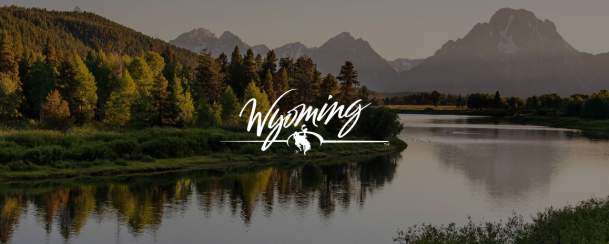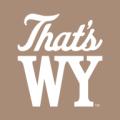Mindful vacations allow families to step away from distractions on electronics and to focus on time spent with one another. No better place than Wyoming exists to roam wild and free through vast plains or over towering mountains. Regardless of individuals’ abilities, the outdoors offers benefits to mental and physical health. Teton Adaptive Sports provides options for people with different abilities to reap these benefits in Wyoming’s open air.
Skiing from the Start
Teton Adaptive Sports began when ski instructors at Jackson Hole Mountain Resort realized there needed to be more opportunities for people with different abilities to enjoy the mountain. Instructors used whatever materials they could get their hands on to make skiing possible for anyone who wished to experience the rush of cold air and the feeling of powdered snow while gliding down a mountain.
“Founders Kurt Henry and Don Carr had duct tape and screw drivers and they were making adaptive skiing possible,” Christy Fox, executive director of Teton Adaptive Sports, said. “They ended up meeting some donors and people who they thought could support the process.”
From there, Teton Adaptive Sports flourished into a non-profit organization that serves over 400 people a year. More often than not, Teton Adaptive Sports assists families. They learned to do so through their foundational principles of inclusivity, experiencing the outdoors and enjoying recreational experiences.
Teton Adaptive Sports established these principles to address the need for people with different abilities to have thrilling adventures equally as challenging as everyone else’s adventures.
“We believe that separate isn’t equal,” Fox said. “Inclusive outdoor recreation is our way of helping mainstream outfitters, providers, and national parks along with athletes' cognitive, developmental and physical disabilities so they can do the same activities that other people can do.”
What does Teton Adaptive Sports do?

Thanks to committed instructors, volunteers and donors, Teton Adaptive Sports continues to help families and individuals create life-changing experiences in northwestern Wyoming.
The staff at Teton Adaptive Sports commits their time to learning more about people with different abilities during trainings.
“I’ve been in Wyoming for the last 15 years getting people with disabilities out into the wilderness and seeing what people are capable of,” Ryan Burke, a board member and volunteer with Teton Adaptive Sports, said.
People with different abilities often face financial burdens, so Teton Adaptive Sports also offers scholarships that supplement the cost for their skiing adventures. This makes it possible for families to experience an adventure together, sometimes for the first time!
Fox reflected on one such family who visited Jackson with three teenagers. One of them used a wheelchair and was nonverbal. They wanted Teton Adaptive Sports to do something with their son while the rest of the family went skiing. The staff member who answered the phone offered to take him skiing.
The family felt hesitant about Teton Adaptive Sports’ offer but decided to let him take ski lessons with one of their instructors. The family came and went throughout his lessons.
“At the end of the week, all three kids and the parents skied Après Vous chairlift for the whole afternoon; taking runs with their brother who had never been out skiing with them before,” Fox reminisced. “The parents told us with tears in their eyes that they were not aware that their son could do so much. And that when they got home, they were going to find out what existed for him to do there.”
Join the Fun

Teton Adaptive Sports hosts annual events like a mountain bike camp for handcyclists in the summer and sled hockey on select Sundays in the winter. Summer programs begin in June and run through September.
All of the events hold a special place in staff’s hearts, but Paddle Days especially stands out. It occurs three times throughout the summer and involves different pieces of equipment provided from Teton Adaptive Sports’ partner Rendezvous River Sports. Participants and staff picnic together then kayak and paddle board through picturesque String Lake while looking in the water at a reflection of the Tetons.
People who prefer an individualized experience may give Teton Adaptive Sports a call to design their own, unique experience.
“For visitors, we consider ourselves a resource for anybody coming to Wyoming who has different abilities,” Fox concluded. “There’s something for everybody no matter what your ability is.”
To get in contact with Teton Adaptive Sports or for information about Summer Adventure Days and other activities occurring, visit their website or Facebook page.
For more information regarding accessibility in Yellowstone National Park, Grand Teton National Park, Devil’s Tower National Park and other national parks as well as Wyoming state parks, be sure to visit the parks’ websites.

